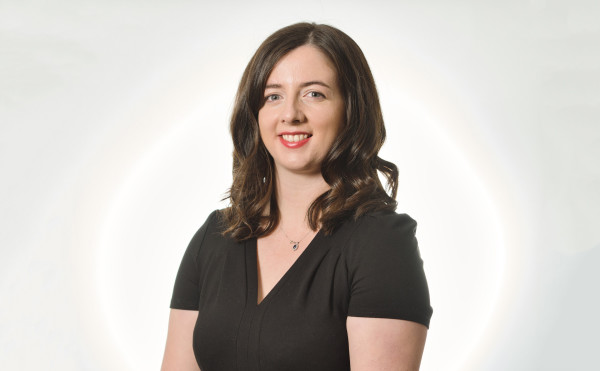

In this latest interview, Helen Thomas, chartered financial planner and winner of the Insurance Institute of Liverpool's young achiever of the year award, tells FTAdviser the issues that young people face in regard to their finances.
She also explains how to overcome a possible age gap between these younger clients and advisers.
FTAdviser: We recently reported that 6 per cent of financial advisers are under 30. Have you experienced this age disparity? What do you think can be done to help younger people get into the profession?
Helen Thomas: It doesn’t surprise me that only 6 per cent of advisers are under 30, you only need to look at conference attendees to see that there is a shortage of younger people in the profession.
I’ve found that emphasis is put on ‘experience’ but there is a shortage of training available to younger people wanting to become advisers in small and mid-size firms.
Instead, many younger people go through the technical examinations and administration and paraplanning roles without the necessary client facing experiences.
FTA: When working with younger clients, how do you incorporate their age when giving financial advice?
HT: Financial planning is about helping people reach their goals, someone aged 25 will have very different needs and priorities to someone aged 55 or 75.
Because younger clients have different goals and very different timeframes for things such as retirement and estate planning, we have to look at the advice process differently.
For example, while a cashflow model is a very useful tool for people in or nearing retirement, it is less useful for someone in their mid-twenties, looking at the next 70 years, so instead we view it as a ‘early warning system’.
Similarly, making pension contributions when you’re 25 is more about the immediate income tax savings than how much tax-free cash you could have when you’re 58 or the IHT saving at 74.
It is really about looking at what you can do now, that will help your future self, without impacting too much on your shorter-term goals.
FTA: How responsive are your younger clients to financial planning? How do you bridge the gap to make financial planning seem appealing to them?
HT: Generally speaking, younger clients are as responsive as older clients to financial planning. The key difference that I’ve found is that the preferred communication style and method is different.
For example, younger clients will generally respond better to emails, when they have free time from work / family, usually on weekends or later at night.
To get younger clients engaged, we provide free financial education pieces early on and build on financial literacy by providing topical insights, blogs and news pieces.
As younger clients then begin to earn more and invest or inherit / are given substantial gifts, they are then in a better position to be able to make sound financial decisions for themselves.
Discussing income tax or capital gains tax benefits as part of financial planning is also a good place to start.
FTA: As an educator for the Personal Finance Society, working with 16-18 year olds, have you seen social media playing a factor in how young people perceive their finances/investments?
HT: There have been a few examples of students asking about crypto-currencies, NFTs and various side-hustles. When questioned, they usually point to influencers on tik-tok and Instagram.
Generally, it’s curiosity about investments rather than investing themselves but they know very little about stock markets or traditional investment vehicles such as ISAs and pensions.
FTA: How important is financial education in combating misinformation spread via social media?
HT: Financial education is vital in combating misinformation in my opinion as it helps people make more informed choices about their finances. I believe this is the case for all age groups but in particular young people as scams and get rich quick schemes seem to be prevalent on social media.
FTA: Do you think the school curriculum does enough to educate young people about their finances?
HT: Based on my work as an Education Champion, I don’t think the school curriculum does enough to educate young people about finance.
I’ve found that the financial education received by students has been sparse, and sometimes unhelpful.
For example, in a ‘My Personal Finance Skills’ session on debt, a group of students explained they had had a previous session on debt that scared them so much they were petrified about taking on any debt at all.
At the end of the session they said they felt relieved to learn that not all debt is terrible and knew what APR meant and could check different deals themselves.
Bodies such as the PFS My Personal Finance Skills do help bridge the gap in financial education but it is limited to available volunteers to facilitate the sessions.
Banks and other larger financial institutions also offer support but this has limitations too. Unfortunately, this means that a lot of schools and students miss out on good financial education.
Schools aren’t the only resource available to educate students and family have a part to play but as a study by The FT and Ipsos Mori suggests, there is a lack of financial literacy amongst many adults too.
FTA: What is the ideal benchmark of knowledge a school leaver should have?
HT: I believe that at school leaver age, students should have a basic understanding of what interest rates are; the impact of cumulative interest; a basic knowledge of how to budget; different types of bank accounts, Isas and pensions; and have a basic understanding of taxation.
This would give people a solid base to build on their understanding as they get older, choose to become auto-enrolled, buy a house, invest themselves.
calum.kapoor@ft.com



